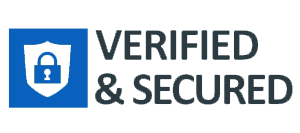Securing a Small Business Administration (SBA) loan is often seen as a golden ticket for small business owners looking to start or grow their operations. However, navigating the SBA loan process can sometimes feel like traversing a labyrinth, with various hurdles and requirements that can be difficult to meet. If you’re finding it challenging to get an SBA loan, you’re not alone. Let’s break down the requirements and uncover why some businesses face difficulties, ensuring you’re better equipped for success on your next attempt.
Understanding SBA Loans: An Overview
SBA loans are designed to provide small businesses with accessible financing options that might not be available through traditional lending channels. These loans are not directly issued by the SBA but rather through participating lenders, with the SBA guaranteeing a portion of the loan to reduce the lender’s risk.
The Core Requirements for SBA Loans
- Business Size and Type: The SBA has specific definitions for what constitutes a small business, which can vary by industry.
- Financial Health: Applicants must demonstrate the ability to repay the loan through detailed financial statements.
- Credit History: A solid credit score is crucial, as it reflects your reliability as a borrower.
Common Hurdles in Securing an SBA Loan
- Insufficient Credit History: Many small businesses, especially startups, struggle with a lack of credit history or bad credit scores.
- Inadequate Collateral: SBA loans often require collateral, which can be a stumbling block for new or small businesses without significant assets.
- Complex Paperwork and Procedures: The application process for SBA loans can be daunting, with extensive documentation required.
Navigating Bad Credit Challenges
Bad credit is a significant barrier for many small business owners. However, there are strategies to improve your creditworthiness:
- Debt Management: Work on paying down existing debts to improve your debt-to-income ratio.
- Credit Repair Services: Consider consulting a professional to identify and correct any errors in your credit report.
Exploring Alternative Financing Options
If an SBA loan seems out of reach, don’t lose hope. Explore other financing avenues:
- Business Lines of Credit: Flexible and ideal for managing cash flow.
- Unsecured Loans: These do not require collateral but might come with higher interest rates.
- Factoring: Sell outstanding invoices for immediate cash.
- Small Companies and Big Tech Financing: These entities sometimes offer innovative financing solutions tailored to small businesses.
The Importance of a Strong Business Plan
A comprehensive business plan is your roadmap to success, not only for your business but also in securing financing. It should clearly articulate your business model, market analysis, financial projections, and how you plan to use the loan.
Tips for a Successful SBA Loan Application
- Thorough Preparation: Ensure all your documentation, from financial statements to business plans, is in order.
- Understand SBA Loan Types: Familiarize yourself with the different SBA loan programs to find the one that best suits your needs.
- Seek Guidance: Don’t hesitate to consult with financial advisors or SBA-approved lenders to navigate the application process.
The Role of Collateral in SBA Loans
Understanding the collateral requirements can help you better prepare for your loan application. While not all SBA loans require collateral, having assets to back up your loan can improve your chances of approval.
Short-Term Business Loans as an Alternative
For businesses needing quick cash or those struggling to meet the requirements for an SBA loan, short-term business loans can be a viable option. While typically more expensive, they can provide the necessary funding when time is of the essence.
Enhancing Your Application with a Strong Financial Projection
A crucial element often overlooked by applicants is the financial projection. This component of your business plan forecasts future revenue, expenses, and profitability. Demonstrating a realistic yet optimistic financial future can significantly sway lenders in your favor. Include detailed analyses and data to support your projections, showing lenders you’ve done your homework and understand your market.
The Power of Personal Investment
Personal investment in your business can also bolster your SBA loan application. Lenders view this as a sign of commitment and confidence in the business’s success. An equity injection, or personal funds invested into the business, reduces the lender’s risk and can make your application more appealing.
Leveraging SBA Resource Partners
The SBA provides a wealth of resources to help small businesses thrive, including SBA Resource Partners like SCORE, Women’s Business Centers, and Small Business Development Centers. These organizations offer mentoring, training, and guidance that can sharpen your business acumen and strengthen your loan application. Utilizing these resources not only aids in preparing a compelling application but also in laying a solid foundation for your business’s operational strategies.
The Importance of Persistence and Flexibility
Securing an SBA loan is often a test of persistence and flexibility. If your initial application is unsuccessful, take it as a learning opportunity. Review feedback from lenders, refine your business plan, improve your credit standing, and consider alternative financing strategies in the meantime. The business landscape is ever-evolving, and adaptability can turn previous obstacles into stepping stones for future success.
In conclusion, while the path to securing an SBA loan can be fraught with challenges, a well-prepared application, strong financial projections, personal investment, and the strategic use of available resources can dramatically improve your chances. Remember, the goal is not just to secure a loan but to build a sustainable and thriving business.


